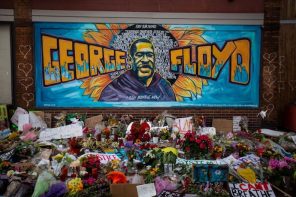The question takes on special salience in light of two very recent events: Paul Krugman’s receipt of the Nobel Prize in Economics for his work on global markets and global trade, and Alan Greenspan’s rather shocking testimony on Capitol Hill Thursday. One is struck first by how entirely separate these two events are in current media reportage, almost as if to suggest that there are good economics and bad, and little in between, whereas most of the actual marketplace exists in that bizarre “in between.”
Still more to the point, I was struck by David Brooks’s partial defense of the Greenspan testimony. For Brooks, the testimony was noteworthy for its candor; Greenspan simply admitted that he did not see the housing crash coming, and was at the same time impassioned in his continued commitment to his own economic philosophy, one based, according to Brooks, on “empiricism.”
What Paul Krugman and Alan Greenspan and most economists share as economists is an intense interest in the way people behave economically, in the psychological motives (and yes, the faith) that drive certain choices. In the world of contemporary economics, according to David Brooks, there are two dominant models of analysis: number crunching and psychology. Greenspan was a number cruncher, says Brooks, and unfortunately, human psychology caught up with him. Greenspan saw real estate values continuing to soar with no end in sight and allowed himself to be persuaded that they would never stop rising, and certainly would never fall. So he never had to think about petty psychological realities, like a crisis of confidence, never mind an actual panic.
But that is what has happened. The sky is falling. The floor has dropped. “Fannie and Freddie” pulled the rug out from under the rest of us. It is panic time, and economics is now decidedly a subfield of social psychology.
Now, a conservative like David Brooks, whose candor and commitment to principle is laudable, believes himself to be a “policy wonk”; he likes speeches, and even politicians, who are “wonky.” He makes this claim with tiresome regularity. Most of his social and political analysis hinges on his sense of how mainstream Americans “really” think, what sorts of broad psychological generalizations apply to this electorate. And it is this—the psychology of the market—that he feels Greenspan missed, because he found it uninteresting if not irrelevant.
I was nearly seduced by the reasonableness of that analysis. Then it hit me: the current crisis has nothing to do with psychology; I wish it did. But it is utterly empirical. It is a simple matter of borrowing with no intention to repay, of ignoring debt that soars to staggering proportions, of buying and misrepresenting portfolios, then finding creative ways to invent wealth that in fact does not exist. To liken this to a balloon bursting is ludicrous; it makes it sounds like someone took too deep a breath before blowing, or the air inside suddenly got too warm. This bubble burst because people—the economic types, the alleged experts, the wonks—failed to call things by their right names and failed to tell the truth. Houses are homes, not investments. You shouldn’t buy one you don’t intend to live in for a good long time, because there is no telling what someone will be willing to pay for it a year from now. You shouldn’t buy “bundles,” enormous collections of bad debt, or worse still, imaginary insurance policies, simply because the person selling them has called them “securities.”
This crisis is ironically not psychological at all, though much of the pain is. No, this crisis in empirical, a simple matter of numbers (and words) not adding up. And the reason they don’t? Because people, really bad people, lied about them, cooked the books, sold this nonsense to their friends, and to the rest of us. So forget economic theory, and psychology; we need an ethicist. And the question before us now ought to be: who is going to jail, and when?



